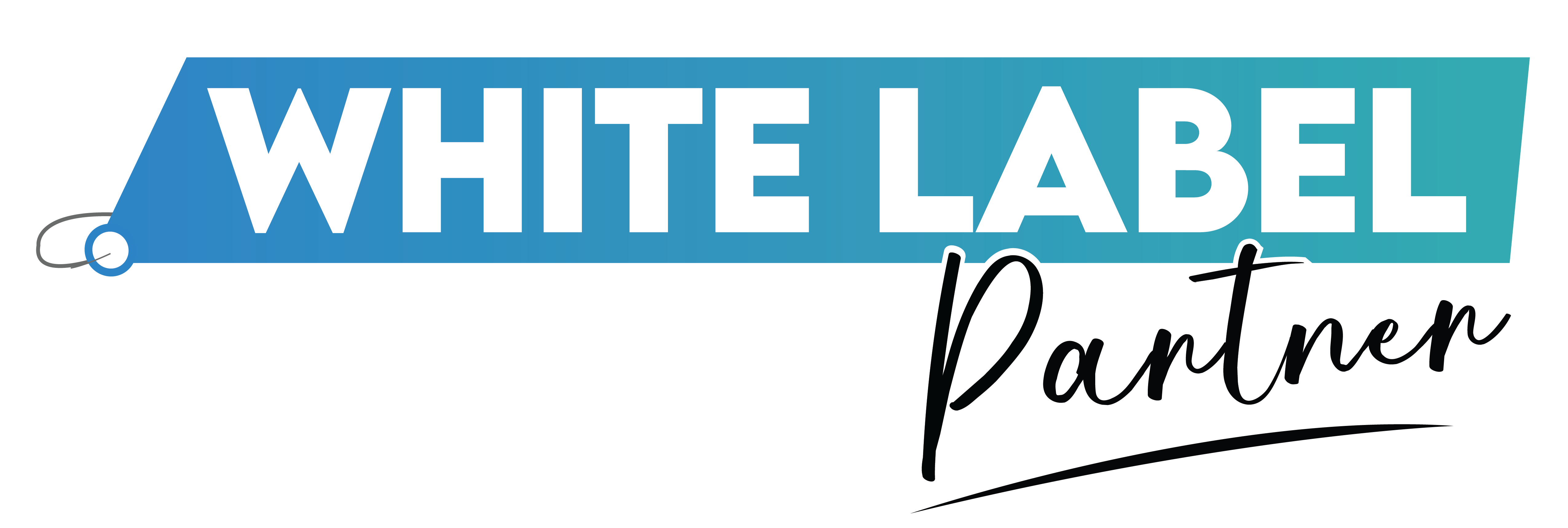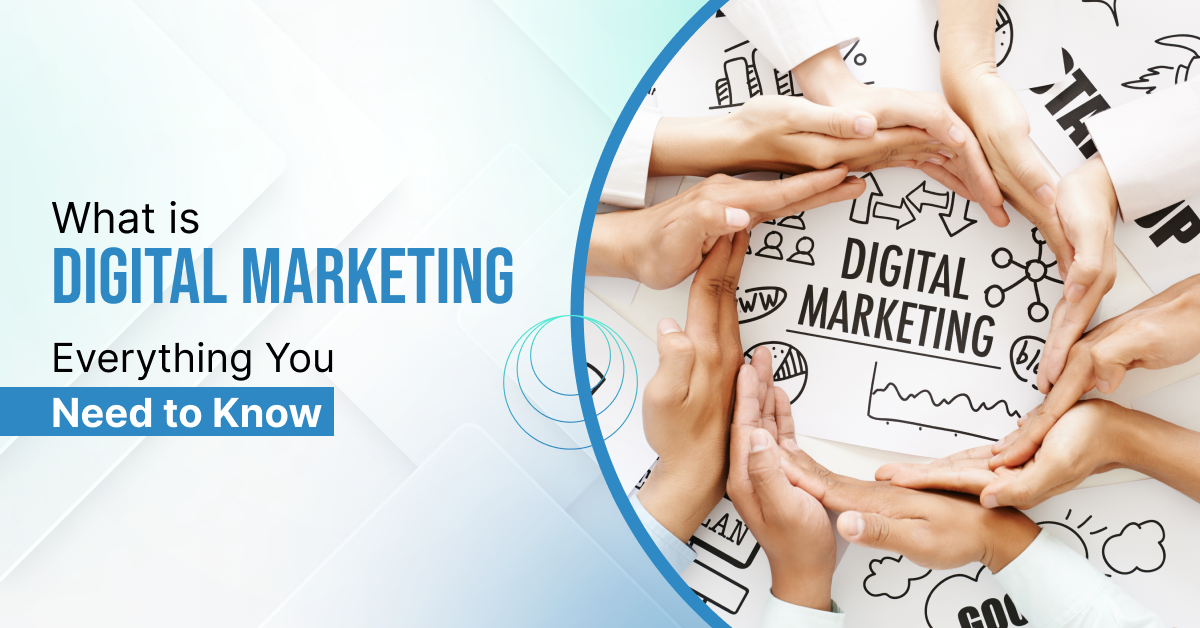Digital marketing refers to all strategies for reaching and engaging potential customers through digital channels such as search engines, social media, email, and websites.
Unlike traditional marketing, digital marketing is more flexible and offers opportunities for personalization, immediate feedback, and audience targeting.
Whether a business is small or large, digital marketing can help boost brand awareness, drive traffic, and increase conversions.
However, the world of digital marketing is vast, and understanding its various components is essential for creating effective strategies.
Partnering with experts, such as a white-label digital marketing agency in the USA, can make a significant difference, especially for businesses aiming to expand their reach and achieve sustainable growth.
The Core Components of Digital Marketing
Digital marketing consists of multiple interconnected elements. Here’s a look at some of the most crucial components that make up a comprehensive digital marketing strategy:
1) Search Engine Optimization (SEO)
Search engine optimization, or SEO, is a strategy to improve a website’s ranking on search engines like Google.
The higher a site ranks, the more likely it attracts organic (unpaid) traffic.
SEO is broken down into several core aspects:
- On-Page SEO: This involves optimizing individual web pages by using relevant keywords, quality content, and optimized HTML elements, such as meta tags and headers.
- Off-Page SEO: This includes building backlinks from reputable websites to improve a site’s authority and leveraging social media and influencer collaborations to boost brand presence.
- Technical SEO: This area ensures that a website’s structure, speed, mobile-friendliness, and security meet search engine standards.
Effective SEO can help attract valuable traffic, improve brand credibility, and generate leads.
Businesses that want consistent organic growth often turn to SEO as a foundational element of their digital marketing. Partnering with a white-label digital marketing agency in the USA can help these businesses execute SEO strategies effectively and consistently.
2) Content Marketing
Content marketing involves creating and sharing valuable content that appeals to a target audience.
Unlike direct advertisements, content marketing is educational, informative, or entertaining and aims to build trust and foster customer loyalty.
Some popular forms of content include:
- Blog Posts: Articles that cover topics relevant to the target audience’s interests or pain points.
- Videos: Engaging video content that explains a product, tells a story, or offers a behind-the-scenes look at a brand.
- Infographics: Visual representations of data that simplify complex information and make it easy to digest.
Content marketing can strengthen a brand’s credibility and encourage long-term engagement by providing value to customers.
For many businesses, it forms the backbone of their digital presence.
With white-label digital marketing solutions, companies can access specialized content marketing services without hiring in-house teams.
3) Social Media Marketing
Social media platforms—such as Facebook, Instagram, LinkedIn, and Twitter—have become essential tools for businesses to connect with audiences, share updates, and build brand identity.
Social media marketing involves creating and sharing content on these platforms to engage users and promote products or services.
Each platform offers unique advantages:
- Facebook: Known for its extensive reach and robust advertising tools, it is ideal for targeting specific demographics.
- Instagram: Great for visual storytelling and reaching younger audiences through images, videos, and stories.
- LinkedIn: Best suited for B2B marketing, networking, and establishing thought leadership in specific industries.
A well-rounded social media strategy can increase brand visibility, foster community engagement, and generate leads.
To help manage these efforts more efficiently, a white-label digital marketing agency in the USA offers expertise in platform-specific strategies, allowing businesses to enhance their social media presence.
4) Email Marketing
Email marketing is a highly effective channel for nurturing relationships with prospective and existing customers.
Businesses use email to send newsletters, promotional offers, event invitations, and personalized messages.
Some key benefits of email marketing include:
- Personalization: Emails can be tailored to individual preferences, leading to higher engagement.
- Automated Campaigns: Many email marketing platforms allow businesses to set up automated workflows, ensuring timely communication.
- Measurable Results: With open rates, click-through rates, and conversion rates, email marketing provides concrete metrics to measure success.
This approach keeps customers informed, encourages repeat purchases, and builds brand loyalty.
Companies can rely on white-label digital marketing experts to streamline email marketing to handle audience segmentation, content creation, and performance tracking.
5) Pay-Per-Click (PPC) Advertising
PPC advertising is a paid digital marketing strategy where businesses pay each time a user clicks on their ad.
This model enables companies to reach their target audience through platforms like Google Ads, Facebook Ads, and Instagram Ads.
Key aspects of PPC include:
- Keyword Research: Finding relevant keywords that potential customers use to search for products or services.
- Ad Creation: Developing compelling ads that capture attention and encourage clicks.
- Bid Management: Setting a budget and bidding for ad placements based on keywords, target audience, and platform.
PPC is ideal for businesses looking for immediate results, as ads can be set up and adjusted quickly to optimize performance.
Partnering with a white-label digital marketing agency in the USA allows businesses to create and optimize PPC campaigns without needing in-house experts.
The Benefits of Digital Marketing for Modern Businesses
Effective digital marketing is about connecting with your audience in meaningful ways.
Whether through tailored ads, engaging content, or real-time communication, digital marketing offers various benefits that give businesses a competitive edge.
Here’s a closer look at some of the top advantages.
Enhanced Brand Visibility
With so many online platforms available, digital marketing significantly increases brand visibility.
Businesses can reach target audiences on search engines, social media, email, and other channels by consistently promoting products and services.
By maintaining a steady digital presence, brands stay top-of-mind and relevant to their audience, which fosters trust and loyalty.
In addition, search engines and social platforms allow brands to show up where customers spend most of their time.
With strategies like search engine optimization (SEO) and social media marketing, brands can enhance their visibility, creating multiple touchpoints that nurture prospects from awareness to purchase.
A white-label digital marketing agency in the USA can handle the intricate details of boosting brand visibility, providing customized solutions that allow businesses to focus on growth without getting bogged down in the technicalities.
Improved Customer Targeting and Engagement
One of the biggest advantages of digital marketing is its precise targeting capabilities.
With tools that allow for demographic, geographic, and psychographic targeting, businesses can reach the customers who are most likely to convert.
Segmentation enables brands to tailor messages to fit specific groups, making communications more relevant and impactful.
Digital marketing also allows for higher levels of engagement.
Through interactive content, social media discussions, and personalized email campaigns, companies can engage with customers in real-time, answering questions and building lasting relationships.
With the help of white-label digital marketing experts, businesses can implement advanced targeting techniques without developing an in-house team, saving time and resources.
Data-Driven Decision Making
One of digital marketing’s standout features is the ability to track and measure every campaign in real-time.
Analytics allow businesses to assess what’s working and what isn’t, facilitating data-driven decisions that improve campaign results over time.
Key performance indicators (KPIs), such as click-through rates, conversion rates, and engagement metrics, provide insights that enable constant optimization.
With digital marketing analytics, brands can monitor customer behavior, identify trends, and quickly adjust to meet changing demands.
This agility helps brands maximize their return on investment (ROI) while staying aligned with their audience’s preferences.
Working with white-label digital marketing solutions gives businesses access to analytics expertise and tools that may otherwise be cost-prohibitive. A white-label partner can ensure that data is utilized effectively for optimal decision-making.
Scalability and Flexibility
Digital marketing provides the flexibility to scale campaigns up or down as needed, which is particularly valuable for growing businesses.
Companies can adjust their digital marketing efforts to align with their current goals as they expand or enter new markets. This scalability is often challenging with traditional marketing, where costs and logistics can be limiting.
With digital marketing, businesses can take advantage of seasonal trends, product launches, or regional campaigns without overhauling their entire strategy. This ability to adapt in real-time is essential in today’s fast-paced business environment, where customer preferences and industry dynamics constantly evolve.
A white-label digital marketing agency in the USA can support a business’s growth by providing the tools and strategies to scale marketing efforts smoothly, helping brands meet increased demand while maintaining quality.
Trends Shaping the Future of Digital Marketing
As digital marketing evolves, staying updated on key trends can help brands better connect with audiences.
Here are a few trends shaping the field:
1) Artificial Intelligence (AI) and Machine Learning
AI and machine learning are streamlining how brands interact with customers.
From AI-driven chatbots providing 24/7 assistance to predictive analytics for better ad targeting, these tools help marketers craft more personalized, data-driven strategies.
Brands using AI can analyze customer behavior quickly, leading to more engaging, targeted content.
2) Privacy-Centric Marketing
With growing privacy concerns, digital marketing is increasingly focused on transparency.
Data protection regulations, like GDPR, push brands to prioritize first-party data—information collected directly from users who engage with them.
Building trust through transparent practices is essential as brands move away from third-party data sources.
3) The Rise of Video and Interactive Content
Video remains dominant, with platforms like YouTube and TikTok leading the charge.
Beyond traditional video, brands leverage interactive formats—quizzes, AR experiences, and virtual try-ons—to boost engagement.
Interactive content keeps users engaged longer and provides memorable, hands-on experiences that can drive purchasing decisions.
4) Voice Search Optimization
As more users rely on voice commands with virtual assistants, optimizing for voice search is key.
Voice search queries are often conversational and location-specific, so brands focus on local SEO and create mobile-friendly content that answers specific questions.
Adapting to this trend helps brands remain visible in voice search results.
5) Micro-Influencer Marketing
Influencer marketing is shifting to focus on micro-influencers—content creators with smaller but highly engaged audiences.
Micro-influencers offer authentic connections within niche communities, often driving better engagement than larger influencers.
Brands increasingly partner with micro-influencers for long-term collaborations, building trust and effectively reaching targeted audiences.
These trends illustrate the dynamic nature of digital marketing, where personalization, innovation, and adaptability are critical for success.
Brands that stay ahead by leveraging these trends can engage audiences in meaningful, forward-thinking ways.
Why Work with White-Label Digital Marketing Experts?
Building an in-house digital marketing team isn’t feasible for many companies due to budget constraints, resource limitations, or the time required to train staff.
That’s where white-label digital marketing comes in.
By partnering with white-label digital marketing experts, businesses can access professional-grade services under their brand, allowing for seamless customer experience without stretching internal resources.
What is White-Label Digital Marketing?
White-label digital marketing refers to services provided by an external agency that companies can brand as their own.
Essentially, a white-label agency does all the work behind the scenes, from strategizing to executing campaigns, while the client company takes the credit and reaps the benefits.
This approach is particularly useful for agencies, small businesses, and companies seeking expert help without investing in extensive in-house resources.
White-label digital marketing covers all major components—SEO, content marketing, social media, and more—making it a flexible solution for businesses of any size.
Client companies benefit by expanding their service offerings, improving customer satisfaction, and boosting revenue.
The Advantages of Partnering with White-Label Digital Marketing Agencies
Choosing a white-label partner provides several advantages, including:
- Specialized Expertise: White-label agencies employ experienced professionals who specialize in different areas of digital marketing. Whether it’s advanced SEO techniques, targeted PPC, or content strategy, a white-label team has the expertise to deliver effective campaigns.
- Cost and Time Efficiency: Hiring a white-label agency eliminates the need for recruiting, hiring, and training staff. Companies can offer advanced digital marketing services without the overhead costs of building an internal team, saving time and money.
- Faster Implementation: White-label agencies work quickly and efficiently to execute campaigns, as they already have processes, tools, and resources. This speed is particularly beneficial for businesses that need to launch or expand campaigns quickly to stay competitive.
By utilizing white-label digital marketing solutions, companies can focus on their core competencies and be confident that their digital marketing is in expert hands.
White-label partners handle everything, from campaign strategy to execution, allowing businesses to expand their offerings and effortlessly enhance client satisfaction.
Working with a white-label digital marketing agency in the USA gives companies access to top-tier services aligned with the American market.
This advantage allows for timely responses to local trends and customer needs, providing a competitive edge.
Embrace White-Label Digital Marketing for Success
Digital marketing is essential for modern businesses that want to grow, engage customers, and thrive in a competitive landscape. From enhancing visibility to enabling data-driven decisions, digital marketing empowers businesses to create valuable connections with their audiences.
Leveraging these strategies—whether through SEO, social media, or content marketing—enables brands to meet their goals efficiently and effectively.
White label Partner is a standout white-label digital marketing agency in the USA, offering a full suite of services designed to support agencies with seamless, scalable solutions. From expert SEO and content creation to targeted social media and PPC management, we handle the heavy lifting so agencies can focus on growth.






